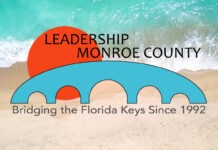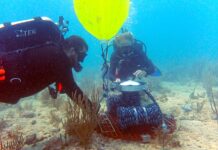
A controversial proposal this past spring to stop Florida counties from using tourist development tax revenue to promote their destination and attract tourists — and instead use the money to reduce property taxes — did not pass the Florida Legislature.
Tourism officials and business owners in the Keys breathed a huge sigh of relief when the “anti-Tourist Development Council provisions” were removed from the state budget that now awaits the governor’s finalization signature.
A new bill does include some changes to the ways counties can spend tourism-derived tax revenue. For example, the new bill that passed allows counties to use TDC money to pay for beach lifeguards, which Monroe County doesn’t have.
The Monroe County TDC on June 16 posted an update on its website about the removal of the provisions that would have amounted to an elimination of all county TDCs by 2026.
“Thank you to everyone who took action to write, call or email House and Senate representatives about the positive power of tourism and its importance to the Florida Keys.
“However, we can’t rest on this success. We need to continue to educate against undermining our No. 1 economic engine before next year’s legislative session. A coalition of legislators, who are seeking drastic change in their own counties, are building a coalition that could be damaging to several counties in Florida, including Monroe County.”
In April, Monroe County TDC president and CEO Kara Franker told the Keys Weekly of the proposed changes, ““Make no mistake: this is not a tax cut — it’s a job killer,” said Visit Florida Keys president and CEO Kara Franker. “This is an existential threat — not just to the tourism industry, but to the communities like ours that depend on it.”
In the Keys, the proposal could have delivered a devastating blow to a tourism industry that generated $61.4 million in tourist development taxes in 2023 and 2024. Visitors booking overnight lodging in the Florida Keys pay a 4% tourism development tax, in addition to a 7.5% sales tax and 1% tourist impact tax. The revenues fund brick and mortar improvements for tourist-related organizations, events up and down the island chain as well as advertising and promotion. The Monroe County TDC manages the local tourism marketing efforts to ensure long-term economic stability resulting from visitor-related revenues.
State Rep. Jim Mooney, who represents the Florida Keys, said there were many unintended consequences with the proposed bill that would have been negative. He noted that Colorado tried a similar proposal in the 1990s.
“The reality is they tried this and it was a miserable failure,” Mooney told the Keys Weekly in April. “They went from the No. 1 tourist destination in this country to dead last. And it took 15 years to recover. We can’t wait 15 years to recover.”
For now, the county’s top tourism and marketing agency is safe from legislative changes, but tourism officials are keeping a wary eye on additional efforts in Tallahassee during the next legislative session.



















